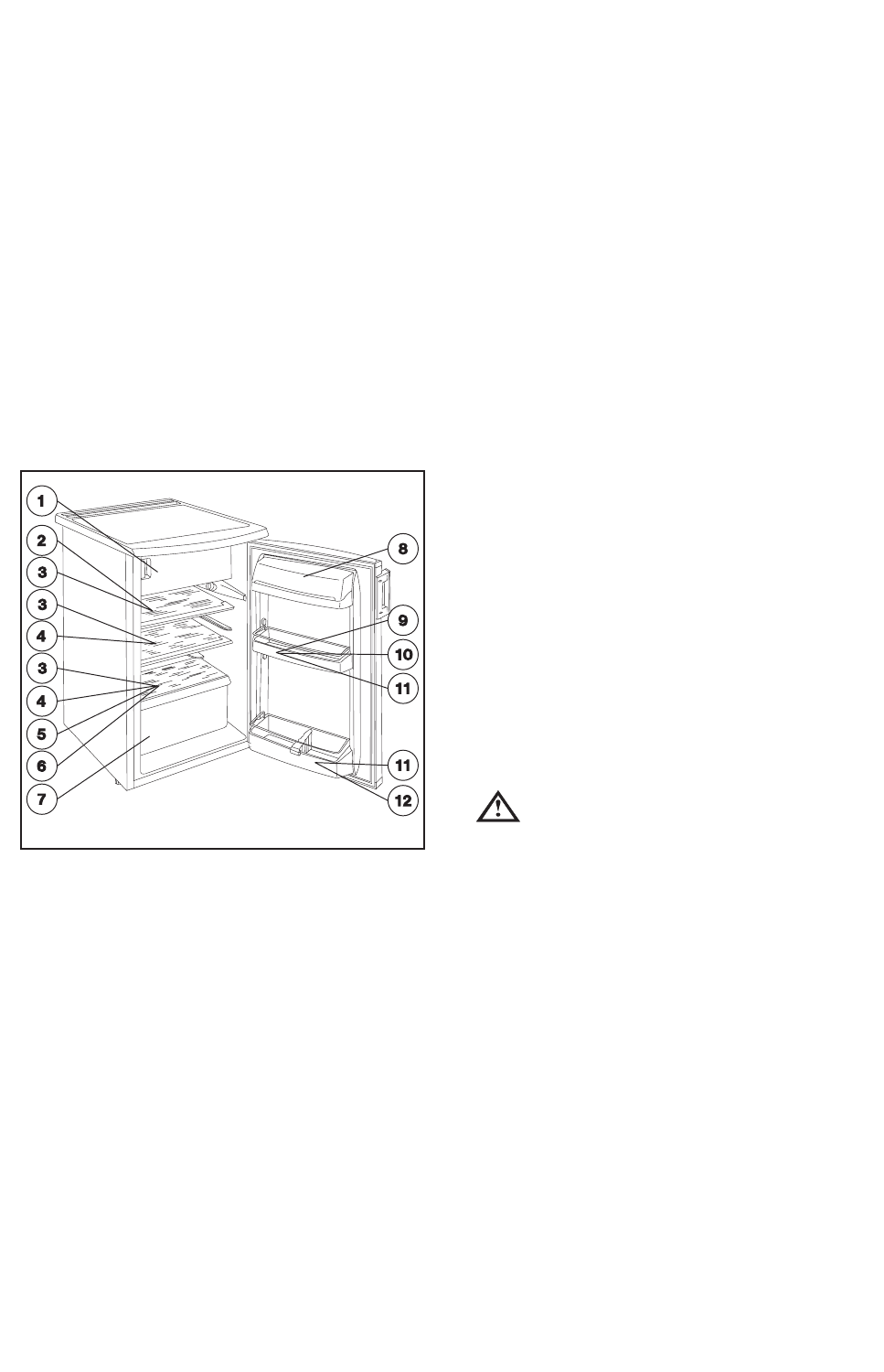
12
Storage time and temperature
of foods
The enclosed charts at the end of the instruction book give
information about storage time in the frozen and the fresh
food compartment.
The storage times quoted are intended as a guide only.
Using the refrigerator
Hints for storage
Below is the recommended storage positions for various
food types:
1. Frozen food storage & ice making
2. Ready-cooked foods
3. Foods in dishes
4. Opened cans
5. Dairy products
6. Fresh meat, cold cuts, sausages, etc.
7. Fruits, vegetables, salads
8. Cheese, butter
9. Eggs
10. Yoghurt, Cream
11. Small bottles, soft drinks
12. Large bottles, drinks, milk
How to use the four-star
frozen food compartment
The frozen food compartment is separated from the
fresh food compartment.
Place the food to be frozen into this compartment.
Depending on the position of the thermostatic control
knob and the temperature in the compartment
(-18 °C or lower), frozen food can be stored here.
Do not allow fresh food to come into contact with foods
that are already frozen.
How to make ice cubes
Fill the supplied ice cube tray ¾ full with water and place
in the freezer compartment. Turning up the thermostat
control will speed up the freezing process,but remember
to turn the thermostat control back to its original
position.
To release the ice cubes, twist the tray along its length.
Do not use sharp or pointed items to remove a frozen
ice cube tray from the freezer compartment.
Storage Shelves
The shelves in the refrigerator compartment are
adjustable to allow storage of large items.
The shelves can be removed and adjusted by opening the
door to 90°.
The door shelves are also adjustable.
To allow the air to circulate within the fridge
compartment do not cover the air circulation
gaps behind the shelves (e.g. with tray etc.)


















